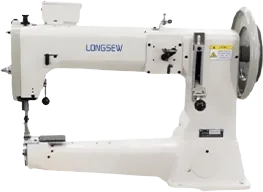Efficient Sewing Solutions for Bag Closure and Production Automation
The Evolution and Importance of Bag Closing Sewing Machines
In the dynamic world of manufacturing and packaging, the efficiency and quality of processes are paramount. One of the unsung heroes in this industry is the bag closing sewing machine. These specialized machines play a crucial role in securing bags that are filled with various products, ensuring sustainability and preventing leakage, spoilage, or contamination. As we delve into the evolution and significance of bag closing sewing machines, we will explore their types, functionalities, and the advancements that have made them indispensable in modern manufacturing.
Historical Background
Historically, the need for robust packaging solutions arose with the growth of trade and commerce. As early as the 19th century, industries began seeking reliable methods to secure products within bags. Initially, these tasks were performed manually, which was labor-intensive and often led to inconsistent quality. The introduction of sewing machines in the industrial revolution revolutionized the stitching process, enabling faster and more reliable bag closure.
With the passage of time, specialized bag closing sewing machines emerged, designed explicitly to meet the unique demands of bag closing operations. These machines marked a significant turning point by enhancing productivity and providing consistent results.
Types of Bag Closing Sewing Machines
Bag closing sewing machines come in various types, each designed to cater to different materials and closure methods. The most common types include
1. Chain Stitch Machines These machines create a series of interlocking loops, providing a strong and durable seam. They are widely used for sewing woven polypropylene and other sturdy materials.
3. Overlock Machines These machines sew over the edge of one or two pieces of cloth to prevent fraying, making them perfect for lightweight packaging solutions.
bag closing sewing machine

4. Bag Closing Machines with Automatic Feed These advanced models come equipped with an automatic feeding mechanism that streamlines the bag closing process, reducing the need for manual intervention and increasing efficiency.
Functionality and Applications
Bag closing sewing machines serve a multitude of functions in various industries. Their primary role is to seal bags that contain products ranging from food grains and pet food to chemicals and construction materials. The integrity of these bags is crucial to ensuring that the contents remain intact during storage and transportation.
In the food packaging industry, for instance, bag closing machines are essential for maintaining hygiene standards. They ensure that bags are sealed tightly, minimizing the risk of contamination. Similarly, in the agricultural sector, these machines are used to package seeds and fertilizers, protecting them from pests and environmental factors.
Moreover, the versatility of bag closing sewing machines allows manufacturers to switch between different types of bag materials and sizes, making them suitable for diverse production lines. The machines have also been adapted for various types of bag closures, including heat sealing and stitching.
Technological Advancements
The evolution of bag closing sewing machines has been closely aligned with technological advancements. Modern machines are equipped with features that enhance precision and efficiency. Some of these innovations include computerized controls, which allow for easy adjustments in stitch length and tension, resulting in consistent quality.
Automated models now feature sensors that detect bag feed and closure needs, making the process seamless. Additionally, these machines are designed with user-friendly interfaces, reducing the training time required for operators. The integration of robotics has also improved the efficiency of bag closing operations, enabling the handling of higher production volumes with reduced labor costs.
Conclusion
Bag closing sewing machines are integral to the packaging industry, ensuring that products are delivered safely and securely. With a rich history marked by innovation, these machines have evolved from manual solutions to sophisticated automated systems. As industries continue to face challenges related to efficiency, quality, and environmental sustainability, the role of bag closing sewing machines will undoubtedly remain vital. Their commitment to enhancing productivity while maintaining the integrity of packaging is a testament to their importance in modern manufacturing practices. As we look towards the future, embracing further advancements in technology will continue to set the stage for even more effective bag closing solutions.
-
Industrial Cylinder Arm Sewing Machine: Revolutionizing Heavy-Duty SewingNewsJul.28,2025
-
Cylinder Arm Sewing Machine: Perfect for Special Sewing ApplicationsNewsJul.28,2025
-
Cylinder Bed Sewing Machine: Essential for Sewing Complex MaterialsNewsJul.28,2025
-
Heavy Duty Sewing Machine: The Essential Tool for Industrial ApplicationsNewsJul.28,2025
-
Computerized Pattern Sewing Machine: Revolutionizing Precision StitchingNewsJul.28,2025
-
Heavy Duty Industrial Sewing Machine: Power Meets PrecisionNewsJul.28,2025
-
Leather Sewing Machine: The Industrial Standard for Tough MaterialsNewsJul.18,2025


























